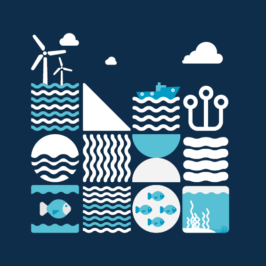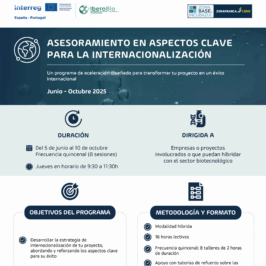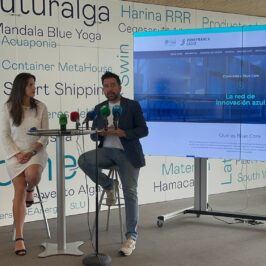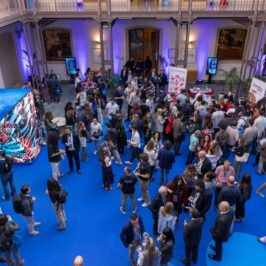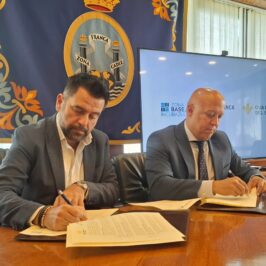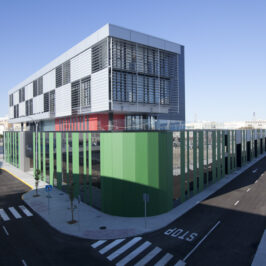“There is an increasing demand for innovative, respectful and sustainable products”
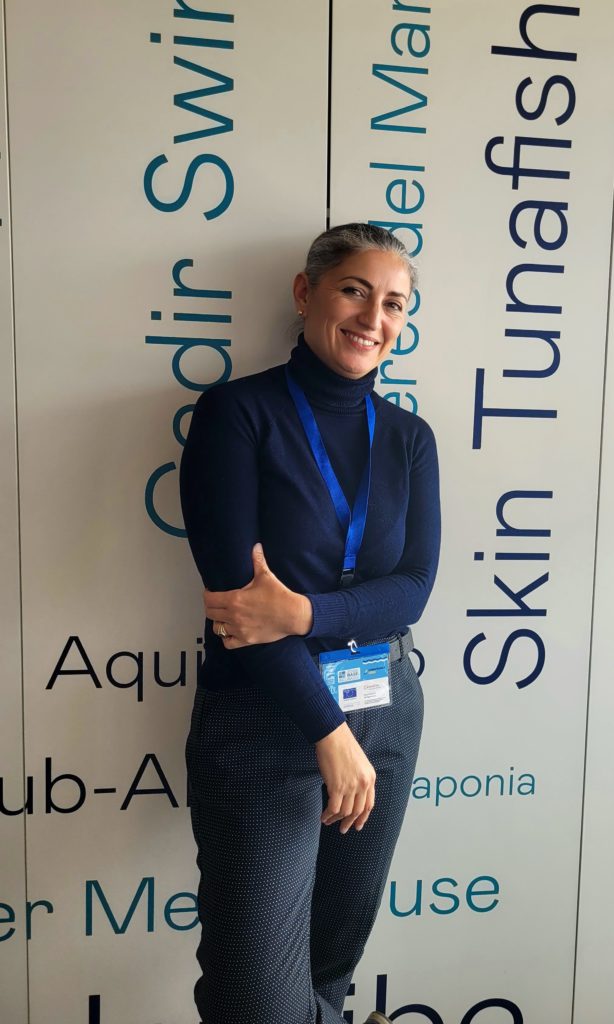
Tanning is an activity that has been developed since time immemorial as a production technique for items to cover and protect us from the weather. Some procedures that have not changed so much in their form, but in terms of their equipment, since the transfer of knowledge is needed and thus find new techniques and ways of tanning the skin.
It is part of Skintunafish's work, which is looking for support to continue investigating. Luisa Fernanda Donoso Jiménez (Bogotá, Colombia, 1977) is its promoter. With a Spanish father and dual nationality, she studied Advertising at the Complutense University of Madrid, and moved to Cádiz where she began working in an advertising agency.
The origin of the idea of Skintunafish arises in his later studies of styling and clothing at the School of Art. He had to do a final project and he took the opportunity to develop his idea for a collection of garments made from tuna skin.
She considers herself from Cádiz, “rather guiritana" and intends to count on the University of Cádiz for its research.
He has attended Incubazul and has told us about his interesting project.
What is your role within the company?
I am the promoter, entrepreneur of the project.
What does your value proposition consist of?
It is about taking advantage of the tuna skin to create a new product: tuna leather. The project aims to recover waste from the tuna fishing activity, process them and turn them into a high-value, chrome-free skin, made with vegetable tanning.
How does your solution contribute to the sustainability of marine resources?
Bluefin tuna waste is underutilized by the industry food or agriculture, with this proposal we want to develop a complementary business model to the fishing activity, giving rise to a by-product that would complete the optimal use of the catch of said species.
What aspects differentiate you from your competition?
The raw material. The privileged location for the development of the activity and the synergies that can be created with the industries of the fishing sector in the region.
Competition with the same product, for now, I think I will not have. It is true that in the same segment there are other fish skins that are already being marketed, such as salmon or tilapia in various European countries. In Spain, the fish leather market is very incipient.
The strategic location for catching tuna also makes me competitive, since the strait is the usual route for tuna, and the fishing industry here has been consolidated with fish farms for fattening tuna, so it would have product throughout the year. Along with this, the weather conditions of Cádiz, which accelerate the drying of the skins and, on the other hand, the fact of working with tuna skin which, due to its size, is larger than salmon, trout or cod, has a higher yield for each piece. .
Lastly, synergy. The geographical location is also strategic due to its proximity to Ubrique, a world-renowned center for leather goods work, and is something very interesting from a production point of view for luxury firms. They can control the production process of a leather that is a short distance from the manufacturing center of their bags.
How do you think technology helps to enhance your solution?
It is essential because in order to implement it, technical and scientific research is necessary to obtain results that are viable for the activity.
Have you come into contact with potential clients?
When I developed the business plan, I spoke with professionals from Ubrique and they confirmed that it is a proProduct that there is increasing demand for innovative, respectful and sustainable products, and there is more interest in skins made with recycled fish, which requires a redirection of the market. It is interesting for small designers and for big brands as singular pieces.
In response to the Sustainable Development Goals (SDG), fashion needs that change to redirect the industry towards sustainability and ecology and stop being so polluting. And fish skin allows the change from exotic reptile skin (with specific breeding of snakes or crocodiles to get the skin), towards an activity like ours that seeks to transform waste.
How did you find out about the Incubazul acceleration program?
Through the news and Linkedin.
How is your experience in the accelerator?
For now very positive. We haven't been here for long, but I can already speak of a rewarding experience with my two mentors, Maria Galvez and Faustino Valdand , blue economy and finance, respectively. Being able to get that feedback from two experts from two very different fields and create a lot of expectations.
What would you say to other entrepreneurs who want to launch their project based on the blue economy?
May they be patient and perseverance. That if they believe in the idea, they continue with it, that they work on it and that they turn a deaf ear to criticism that does not contribute and continue advancing. I have heard everything and I continue, since 2018, with my idea moving forward, and I see that it has a lot of viability. For me it is vital to be in lncubazul.
This High Technology Incubator Project for the promotion of innovation and technology transfer to microSMEs in the blue economy sector in Andalusia “[BlueEcoIncuba x Logistical]Tech = ZONA BASE – INCUBAZUL 2.0” is 80% financed by the European Regional Development Fund within the Pluriregional Operational Program of Spain FEDER 2014-2020 OP. “A way of making Europe” within axis 3: Improving the Competitiveness of SMEs, Thematic Objective 3 Improving the competitiveness of small and medium-sized enterprises, and investment priority 3 Promotion of entrepreneurship, in particular, facilitating the economic exploitation of new ideas, and promoting the creation of new companies, also through incubators.”



